Memorial to the Women of World War II
The bronze uniforms commemorate the vital role of women during World War II.
Until fairly recently, the United Kingdom had no national memorial to honor the nearly seven million service and civilian women who made a vital contribution during World War II. That changed in 2005, when a fitting tribute to those women was unveiled near the Cenotaph, the nation’s primary war memorial.
On July 9, 2005, five military helicopters—an Apache, Sea King, Lynx, Chinook, and Merlin—flew above Central London. Later, two Tornado F3 jets thundered overhead. All were flown by female pilots.
The fly-past was made in honor of the event taking place below them: The unveiling of the Memorial to the Women of World War II by Queen Elizabeth II. The creation of the memorial had been championed by Baroness Boothroyd, who raised some of the £1 million funding on a celebrity episode of Who Wants To Be A Millionaire?, when she chose the memorial fund as her selected charity.
The memorial was designed by the celebrated sculptor John Mills, who won an open competition judged by a panel of experts. His design was inspired by a 1940s photograph of a cloakroom at a dance hall, which sparked his imagination: “I was interested in the concept of these women hanging up their uniforms and going back to their normal lives after the end of the war.”
The result was a bronze memorial, measuring 22 feet high, 16 feet long, and six feet wide. Around the sides of the memorial are representations of the uniforms and working clothes worn by women during World War II, designed to look as if they had been hung up at the end of a day’s work. The lettering used on the memorial, meanwhile, replicates the typeface used on wartime ration books.
There are 17 uniforms in total. These include service uniforms of the Women’s Royal Naval Service (Wrens), Royal Air Force, Red Cross nurses, Air Wardens, and the Women’s Land Army (the Land Girls). There’s also a female police overall, a welding mask, and the work clothes of a munitions factory worker.
Between them, the uniforms represent the massive—and often overlooked—effort of women during World War II. By 1943, nine out of 10 single women aged between 20 and 30 had been conscripted to work in factories, on the land, or in the armed forces. This included 640,000 women in the armed forces, with 55,000 serving with guns and providing essential air defense.
As Baroness Boothroyd said shortly after the unveiling, the memorial is a fitting tribute to these women and the vital but often forgotten work they did during World War II: “I love this monument,” she said. “It depicts the women’s working clothes and how they quietly took them off at the end of the day, hung them up and let the men take the credit.”
Know Before You Go
The Memorial to the Women of World War II is located in the center of Whitehall (the main thoroughfare running south from Trafalgar Square toward Parliament Square).
Standing outside the black wrought iron gates of Downing Street, the cenotaph is the white stone memorial in the middle on one side, the women of Works War II memorial is the black one directly across on the other.
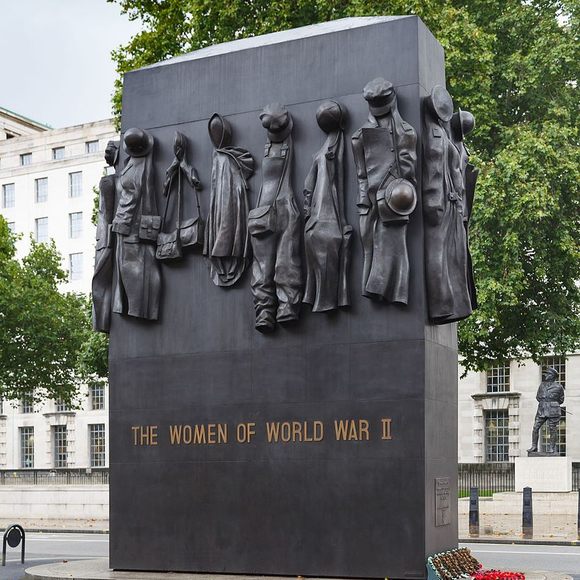

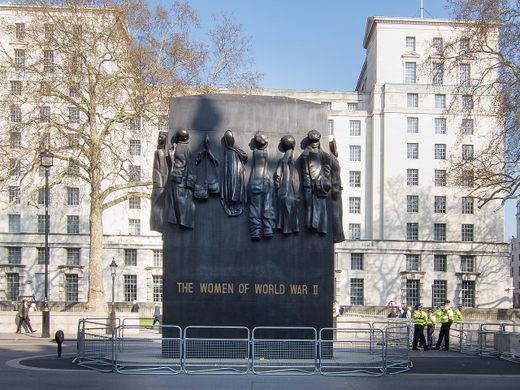
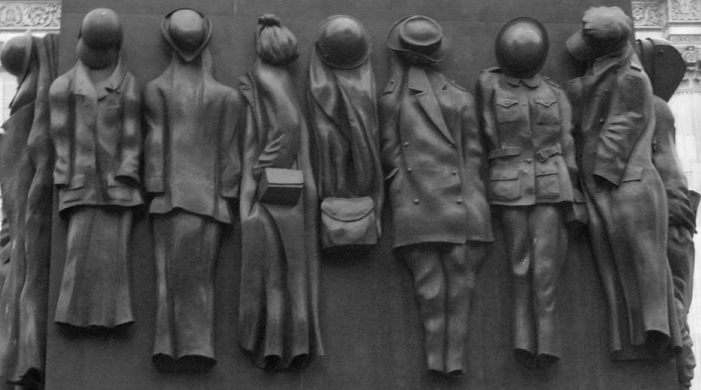
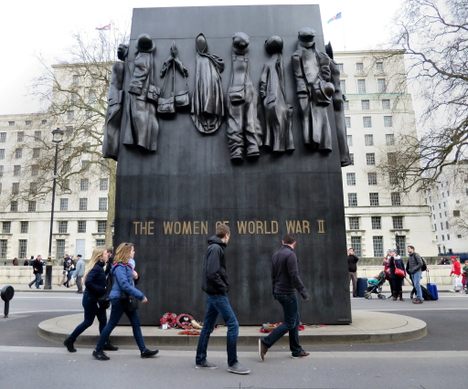
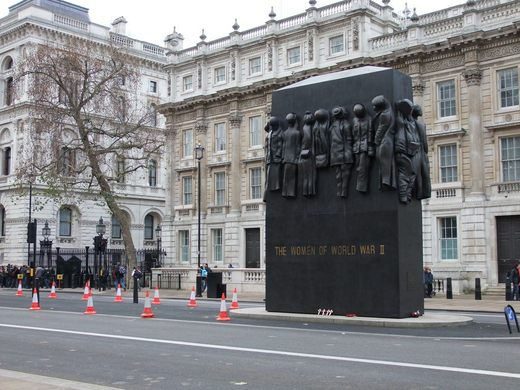
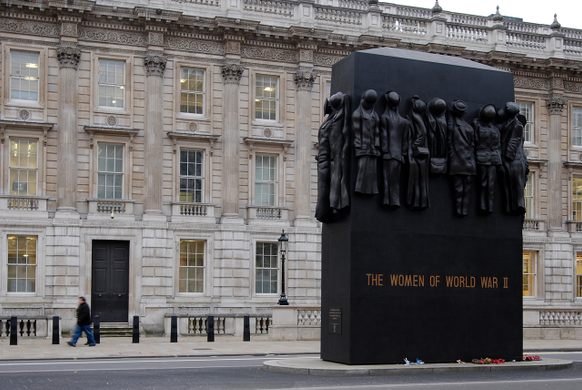
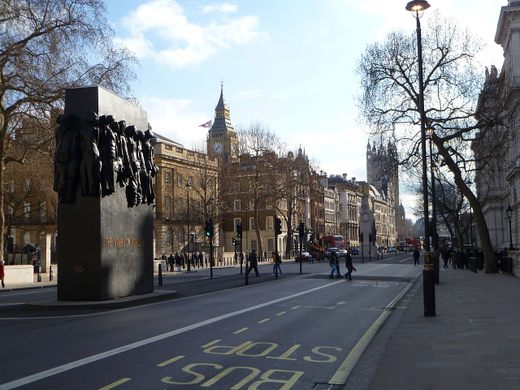
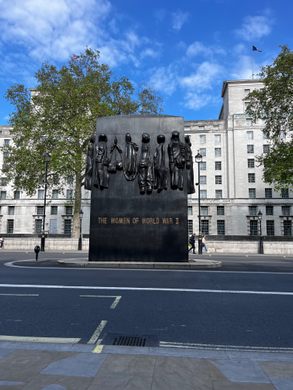
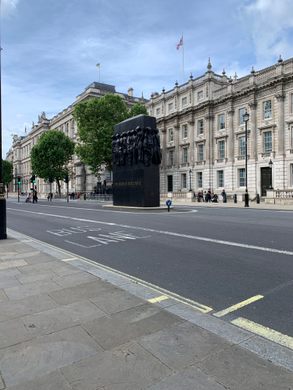







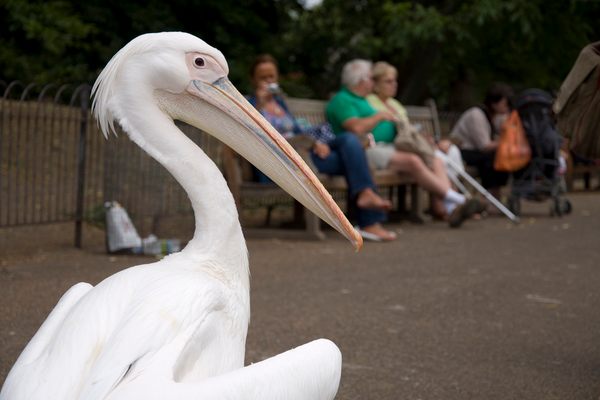

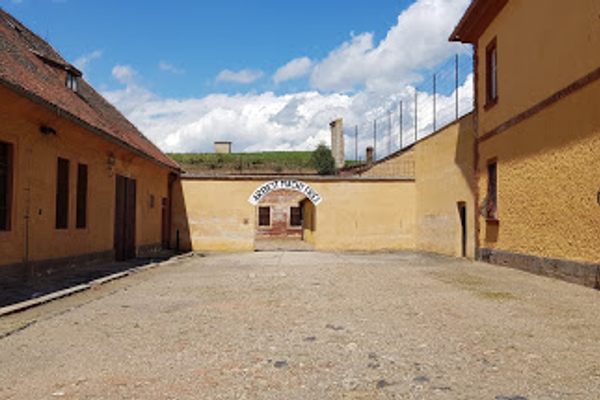
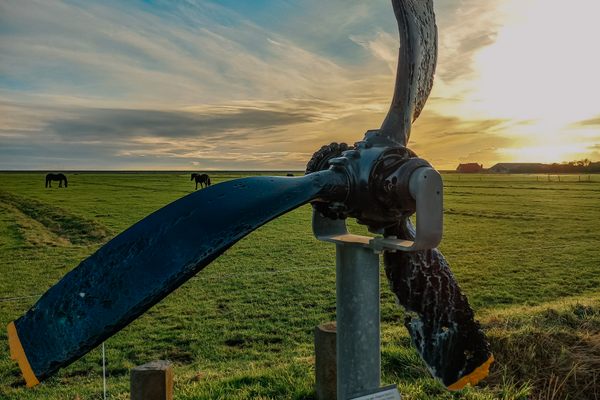


Follow us on Twitter to get the latest on the world's hidden wonders.
Like us on Facebook to get the latest on the world's hidden wonders.
Follow us on Twitter Like us on Facebook